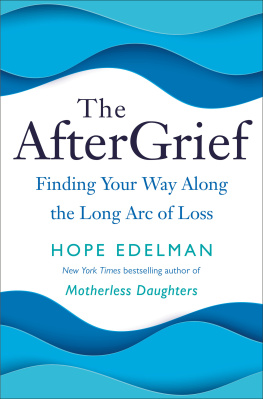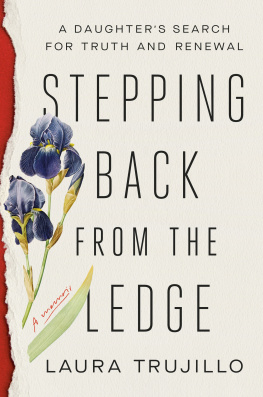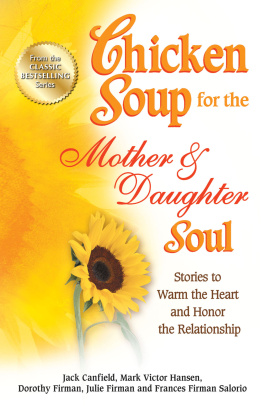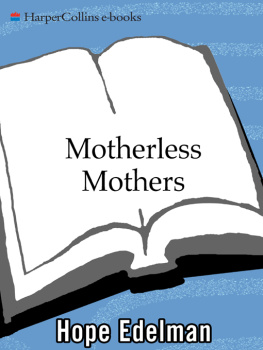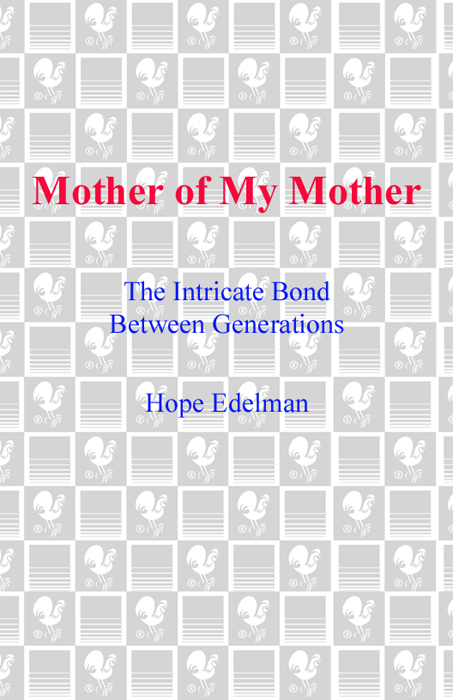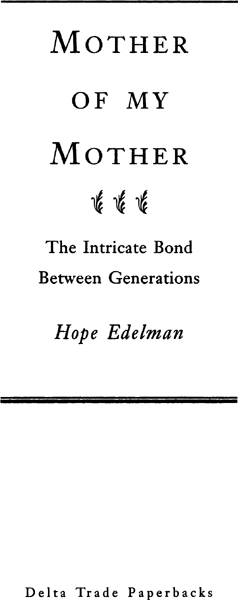5.
10.
14.
20.
Introduction

M y grandmother lived in a town called Mount Vernon, and for most of my early childhood I thought that meant George Washington had once been her neighbor. There was a legitimate old-world feel to her street: gabled roofs, imposing oak trees, trellises, gazebos. Her house was a Cape Cod-style with a century-old maple tree anchored near the curb. Inside, the walls were painted slate blue and the blinds always drawn, and the living room smelled of electric heat and boiled chicken and week-old fruit slowly going soft in a large wooden bowl. My mother bounced her right foot anxiously whenever she sat in the room and my father had to step outside periodically for fresh air, but even when my grandfather sat in his salmon upholstered lounge chair and trapped me between his crossed ankles, refusing to release me until I said the magic words, Open sesame, I never felt the desperate need to escape. I drew great comfort from a room where the walnuts on the end table were the same walnuts Id seen there last year, a room where the type of holiday cards displayed on the mantel were the only evidence of the passage of time.
It did not take me long to understand that rooms were predictable but the people in them were not. My parents, relatively even-tempered in our home, were capable of anything in my grandparents presenceirritation, laughter, indifference, anger. My grandparents, it seemed, could transform from doting elders to meddling intruders in the span of one carefully timed comment. Then my grandfather died unexpectedly the summer I was twelve, a passage I learned about weeks later when I returned from summer camp. In my memory hes a large, gentle man with a shoebrush moustache who stands at the perimeter of every room. Funny, really, since he always sat in a lounge chair in the center or in a seat at the tables head, a commanding presence in his own right, but in my mind my grandmothers personality pushes him aside. Where he was Laurel, she was Hardy. Where he was yin, she was yang.
I never had the kind of grandmother who wore aprons and spectacles and pulled warm cookies from the oven, the kind who exists more often in childrens books than in real life. I didnt have the kind of grandmother I saw on television, either. She was neither as sage as Grandma Walton nor as goofy as Granny on The Beverly Hillbillies. You couldnt reduce her to a single dominant trait the way you could say Aunt Bee was cheerfully domestic or Maude acid-tongued. The grandmother I knew was colorful, opinionated, ubiquitous, stubborn, loving, patient, devoted, intelligent, intrusive, funny, uncontrollably obsessive, wildly superstitious, and capable of both astonishing acts of compassion and unpredictable fits of rage. She had little in common with the New American Grandparent, of the 90s, the one who mall-walks and e-mails and moves down to Florida to remarry at seventy-five. My grandmother wore suits, but they werent the kind you jogged in. She lived in the same house from 1952 until she died.
Because Mount Vernon was an easy thirty-minute drive from my parents home in Spring Valley, New York, my grandmother was a staple of my childhood. I questioned her presence no more than I questioned the existence of my swing set, or of lunch. She was just, simply, there. Several days a week she crossed the Tap-pan Zee Bridge and showed up at our door, usually without warning, always carrying gifts. Plastic snowshakers, Lucite coin banks, those little upright metal calendars where you turned a tiny knob to change the date. She drove over during the day, while my father was at work. It was not unusual for me to come home from school and find her sitting in the kitchen with my mother, drinking coffee in her coat, or for my mother and me to return from an ice-skating lesson or shopping trip to find her parked in front of the house, listening to AM radio in her car. Only now do I realize that means all those years she never had a key.
I imagine that was because my mother knew the risks involved in giving her mother unrestricted access to our house. Whenever my grandmother baby-sat while my parents were away on vacation she immediately combed through the refrigerator and medicine cabinets, discarding all the foods she thought to be bad for us and stocking up on supplies she believed ensured good health. After my parents returned, my mother did a search of her own, pushing the containers of witch hazel to the back of our linen closet and pouring bottle after bottle of castor oil down the kitchen sink. My father watched from the background with his hands on his hips, swearing, Goddammit, Im never leaving that woman alone in this house again. Nobody took this seriously. We all knew that the next time my parents prepared to leave town, my grandmother would come driving up with her suitcase and a vaporizer. Despite her idiosyncracies, my parents knew there was no one they could trust with their children more.
But none of this describes her relationship with me. After she died in 1996, one of my cousins was surprised by the depth of my sadness, having known my grandmother to be difficult, stubborn, and driven by crisis. I knew her in those capacities too. But when I push past the images of her standing in the middle of our living room in her coat and hat, stamping her foot and shouting Listen to me! Would you just listen to me? or standing on our front step, banging on the door and demanding to be let back in, I find other memories, softer ones, of times we spent together, just us two. Of her in 1981 sitting patiently outside a department store dressing room for hours, wearing her wool coat and clutching her pocketbook in her lap, while I tried on pants and sweaters for the new school year the first autumn after my mother died. Or an even earlier memory, one of my first, of her teaching me to read when I was two, afternoon after patient afternoon of alphabet flashcards on the living room sofa, sounding out the letters until I recognized each one.


